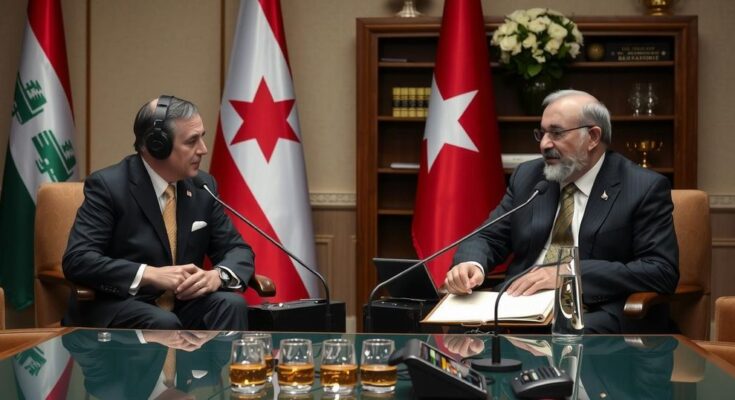General Joseph Aoun was elected as Lebanon’s 14th president, ending a two-year power vacuum amid dire political and economic challenges. His election, backed by various regional and international leaders, signifies hope for stability, military reinforcement, and postwar reconstruction in Lebanon. Aoun’s previous military service demonstrates his capability to unify the nation and address pressing issues.
The election of General Joseph Aoun as Lebanon’s 14th president marks a pivotal moment in the nation’s history, concluding an extensive two-year period without a leader. This development occurs against a backdrop of political paralysis, economic turmoil, and the consequences of Hezbollah’s prolonged conflict with Israel. Aoun, who received 99 votes in the second parliamentary session, is noted for his crucial role in monitoring a fragile ceasefire in southern Lebanon and is expected to bolster the Lebanese armed forces during a tumultuous time. His presidency comes after a series of unsuccessful attempts to elect a new leader, resolving a long-standing political deadlock spurred by significant factional disputes. Promising to unite the country and address terrorism, Aoun also aims to initiate reconstruction efforts while solidifying Lebanon’s borders.
Aoun’s military career has garnered him widespread support, recognized for maintaining the neutrality of the Lebanese Army amidst sectarian divisions and political conflicts. His fluency in multiple languages and tenure as army commander have reinforced his image as an effective leader capable of uniting the nation. Enthusiastic endorsements from both regional and international leaders underscored the importance of his election, with notable figures such as US President Joe Biden and French President Emmanuel Macron expressing confidence in his ability to lead amidst Lebanon’s dire crises.
Lebanon, historically fraught with political and security challenges, has been striving for stability in the face of an economic collapse and territorial threats. The nation has seen numerous failed attempts to elect a president in the past two years, largely attributed to the overpowering influence of Hezbollah and political alliances that reflect the country’s diverse sectarian landscape. General Joseph Aoun’s rise to presidency comes with hopes of restoring governance and addressing the critical needs of the Lebanese people. His military background and experience during key operations have made him a consensus candidate capable of bridging various political divides.
General Joseph Aoun’s election as president represents a significant step toward overcoming Lebanon’s prolonged political impasse and economic difficulties. His commitment to strengthening the armed forces, pursuing reconstruction efforts, and fostering unity among Lebanon’s diverse political factions is crucial for navigating the nation’s complex challenges. The international community’s support for Aoun’s presidency further indicates a readiness to back Lebanon’s journey toward stability and reform, which will be essential for the country’s future prosperity.
Original Source: www.arabnews.com




